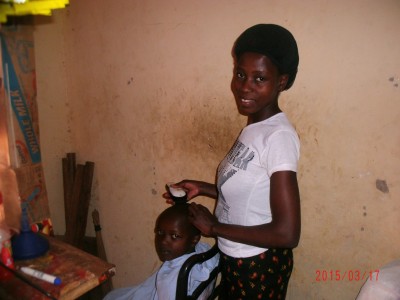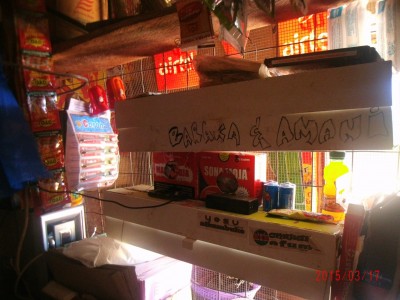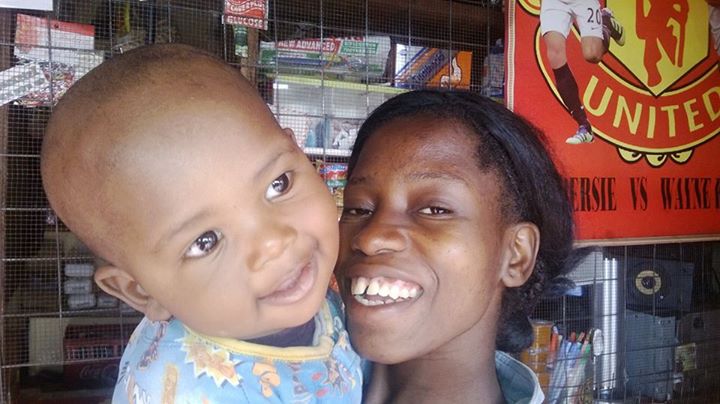By Julia Kurnia, Director
Violet Owino is only 23, but she’s been earning her living like an adult for over a decade. Growing up in a polygamous family (her mother was one of four wives), there were always too many mouths to feed, and Violet joined her mother working as a hired hand in other people’s fields at the age of twelve.
Her family couldn’t afford to send Violet to high school, so – at the age of fifteen – she migrated to the city and began working as a maid, sleeping in people’s kitchens and washing bachelors’ clothes on the side to make money. Sometimes people hired her and refused to pay. From time to time, Violet would go back to the countryside to buy potatoes, which she fried and sold as snacks in the city at a profit. In this way, over many years, Violet accumulated enough savings to buy her own plot of land. At age eighteen, Violet married “a wonderful man who does all he can to support me with the little he also earns.”
Over the years, Violet’s fried potato business evolved into a small shop, which she opened at a strategic location near the gates of Sang’alo Institute of Science and Technology, where the students are her most faithful clientele. Violet used her first Zidisha loan, of $50, to acquire high-yielding seedlings for her garden and stock her shop with fresh cassava, tomatoes and potatoes just in time for the busy holiday season. Profits came pouring in.
Then the unexpected struck: Violet experienced complications in giving birth to her second child, and needed a Caesarian section. Though surgery is far less expensive in Kenya than in wealthy countries, it is still out of reach for most, and many women die needlessly in childbirth. Violet was lucky. She wrote: “I gave birth to a baby boy and the proceeds of the farm that I put in the shop gave me a boost in my profits at just the right time. It was expensive to give birth by Caesarian operation and had it not been for investing in my farm produce and shop I wouldn’t have had the money to pay for the birth.”
Baby Amani (Swahili for “peace”) was born at midnight of the 2015 new year. Thanks to a helping hand at the right time, he and his mother are healthy.
Violet successfully repaid her first $50 loan, and used her second loan of $100 to acquire a Wahl haircutting machine and chairs so that she could add barbershop services to her shop. Business is booming, she reports: at 10 cents per haircut for children and 20 cents for adults, she will soon have so many customers that she will need to hire an assistant.
A self-taught computer aficionado, Violet has also set aside some savings to take computer classes. Meanwhile, she is working on adding a computer to her shop, a strategic investment that will allow her to offer typesetting services for student reports and exam papers. Violet reports that she has already purchased the CPU, and “halfway paid for” the monitor.
Violet works incredibly hard to increase the value of her business. Why do so much? A glimpse of the inside of her shop offers a clue. She’s inscribed the names of her children, Baraka (“blessing”) and Amani, where only she can see them.









God blessed you dear with a precious gift whereby many haven’t. My prayer is build your house with faith and it will stand firm forever.
congratulations.
Glory be to God and thanks be to zidisha organization and all lenders who assisted you be who you are.